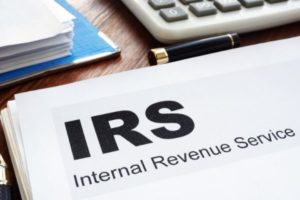
The IRS Automated Collection System (ACS) is used to collect most smaller delinquent tax debts. The ACS is composed of computer-generated notices and a call center of IRS employees that can handle certain types of collection actions.
Dealing With the IRS Automated Collection System
Cases are not assigned to a specific agent in ACS. When you call the number listed on your notice, you will be put in touch with whichever call center employee is available. If you have to call back, expect to start from scratch explaining your situation to another employee.
ACS agents have some training and the ability to negotiate some types of tax debt resolution. However, some agents are more knowledgeable and helpful than others. They may not explain the full range of tax resolution options available to you, instead trying to quickly resolve your case.
ACS can seize your bank accounts and garnish your wages. For certain other enforced collection actions, your case must first be assigned to an IRS Revenue Officer.
If you’re having trouble getting anywhere with ACS, you can ask to have your case transferred to a revenue officer, request a Collection Due Process (CDP) hearing, or simply hang up and call back so you can speak with a different ACS employee.
ACS vs. Revenue Officers
Revenue Officers are assigned to more important cases, such as those involving debts of $100,000 or cases where a levy of business assets is being issued. Once your case is assigned to a Revenue Officer, he or she will be your only point of contact, and you won’t be able to contact ACS anymore.
There are pros and cons of working with a Revenue Officer when compared to ACS. Revenue Officers generally have better training and knowledge of tax laws and procedures. However, you don’t have many options if you get stuck with a Revenue Officer you don’t like.
One option is to request a CDP hearing. However, you can only do this if you’ve received an IRS notice that gives you CDP rights, such as a notice of intent to levy.
At the CDP hearing, you’ll get a fresh start by working with an IRS Appeals Officer. You can negotiate an installment agreement, submit an Offer in Compromise, or work out some other type of tax resolution arrangement.
Contact a tax attorney if you need assistance dealing with the IRS Automated Collection System and resolving your tax problems.
The Gartzman Law Firm can help you with back taxes and other IRS tax problems. Use our contact form to request a consultation with an Atlanta tax resolution attorney.

